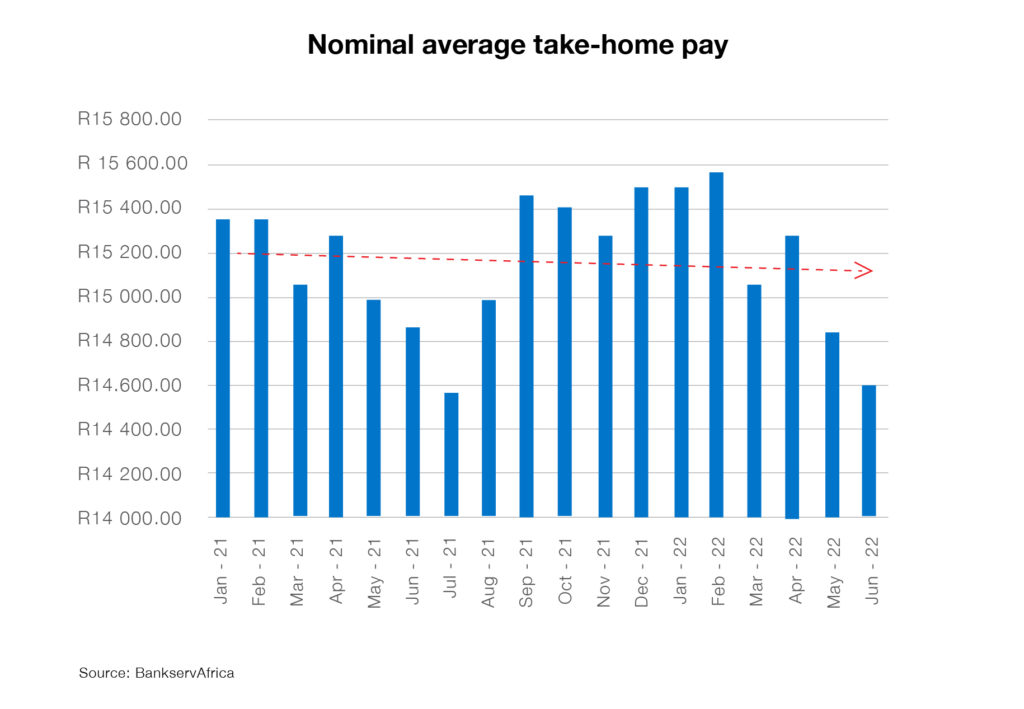Ashona Singh, Risk Specialist at Sanlam Individual Life
The financial ‘hangover’ linked to the Covid 19 pandemic is far from over and without intermediary intervention, people who have been hard hit by the economic fallout thereof may be at risk. If you suspect your clients may be suffering the aftereffects of Covid, now’s the time to sensitively pick up the conversation and help them put a solid foundation back in place to secure their financial confidence.

According to the BankservAfrica Take Home Pay Index (BTPI), negative year-on-year growth for nominal wages remains a reality. Intermediaries know that tough financial times often prompt people to shed insurance products first, and therefore need to remind their clients of the reasons they purchased the cover in the first place – typically, to take care of their family in the event of death or disability. Practically, this may be an opportune time to help people review their budget, reprioritise expenses and direct funds to policies that add real value and peace of mind.
Many people don’t realise the underwriting impact of cancelling risk products and reapplying. The price of risk cover increases as people age, and, with deteriorating health, some may face exclusions, health loadings or cover being declined.
There are smart ways to leverage risk premiums by linking cover with money back options such as Sanlam’s Cashback and Wealth bonus® solutions to complement retirement savings. Intermediaries can help clients explore these options, giving them the flexibility to access cash at certain intervals during the course of the cover or choose to keep the funds until later, providing them with the best chance of a comfortable retirement. Forward thinking always beats wishful thinking and goals don’t materialise without a proper plan in place.

(Re)framing the conversation
People who face money scarcity and are contemplating the cancellation of a policy, may have impaired rational decision-making and can benefit from help to invest more time and energy in their decision-making, says Nick Clifton, Customer Experience Manager at Swiss Re Europe and SA.
He suggests reframing conversations to centre on ‘loss of protection’ rather than ‘cancelling a policy. “Ask people what their plan B is, should the worst happen. For example, they’re experiencing a financial squeeze now, but what if they lost their job? How would they readjust their income? This way, you change the dynamic to get the client to consider the consequences and ‘self-advise’ to a degree.
He suggests employing the key bias of loss aversion – the fact that we hate losing something we already have. “Risk cover is quite intangible, so the idea is to find ways to make it mean something now. Finally, appeal to the ego, ‘You made the smart choice to take out cover, and then to the loss of ease of the process, ‘Should you cancel your cover now, you might need it in the future, and it may not be available to you or could be a lot more expensive.
Most importantly, Clifton says it’s important that clients believe their intermediaries are committed to optimising their present and future financial well-being. “Make it explicit you have someone’s best interests at heart.”
Conversations around cancelling cover
Many people perceive cover as too expensive. Sanlam’s research suggests that just 18% of participants have income protection, with most of those without it citing affordability as the barrier.
Income protection plays a vital role to protect people’s income in the event of illness or injury. Intermediaries can try painting relatable scenarios for their clients, for example imagining the impact of losing their only source of income for even a short period of time, and the knock-on effect for the person and their family. In terms of affordability, different income protection solutions are available to structure a more affordable package of benefits, to allow for an essential level of cover.
If a client must cancel some financial products, I suggest looking at benefits that won’t have an immediate future impact, such as savings products where 12-month payment holidays may apply. If there’s no choice but to cancel cover, it’s crucial to ensure that the client understands the risks. While it’s never too late to start again, there’s no guarantee they’ll receive the same cover amounts at the same price, without health loadings.


